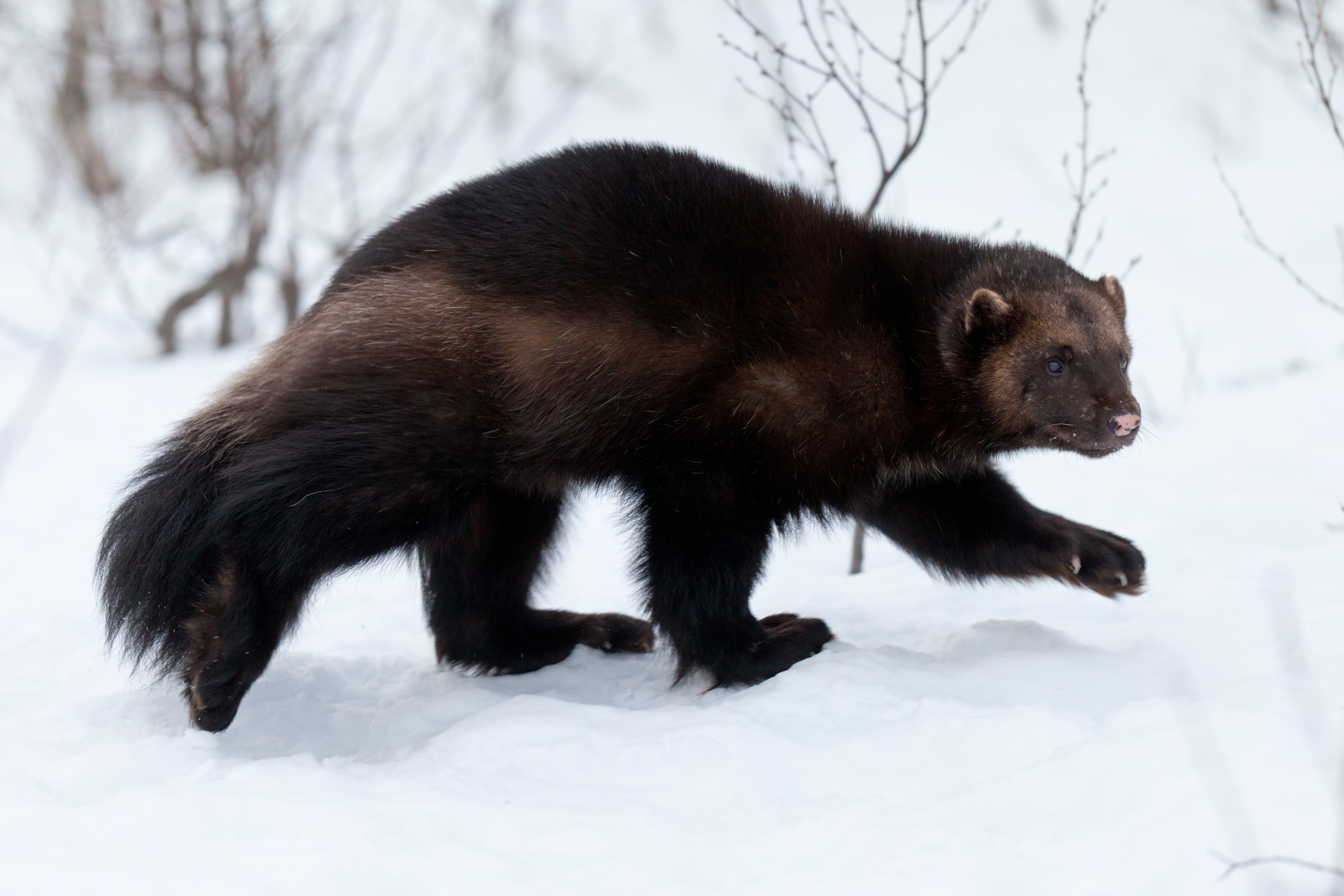The correlation between snow and wolverines is undisputed — where there is not one, there is not the other. But the debate over why wolverines need snow for survival, and when they need it, and how much they need has become a central sticking point in the debate over whether the federal government should afford the species protections under the Endangered Species Act.
Scientific research has shown that the tough-as-nails member of the weasel family depends on snow for survival, and because temperature increases associated with climate change mean its abundance is diminishing, with it, so too is the wolverine’s chance at long-term survival.
Or so goes the argument for wolverine listing. But the federal government previously challenged that basic premise, saying that predictions about climate change’s localized impacts remain “ambiguous” and rejecting the conclusions of the agency’s own scientists and leading experts.
Four years ago, U.S. District Judge Dana Christensen rejected that line of reasoning and issued a sharply worded order reversing the U.S. Fish and Wildlife Service’s (FWS) decision to not list the wolverine on the Endangered Species Act list, instructing them to take action “at the earliest possible, defensible point in time.”
That time has come and gone, according to a coalition of nine environmental groups threatening to sue the FWS — again — if the federal agency doesn’t list the wolverine as threatened within 60 days.
“Despite the federal court’s admonition, the agency has failed to take any steps to protect the species,” according to Tim Preso, an attorney with Earthjustice representing nine conservation groups, who noted that in November 2019 the agency missed its own internal deadline for a wolverine listing decision.
“The wolverine is an icon of our remaining wilderness,” Preso wrote in a statement. “We are taking action to ensure that the wolverine gets a fighting chance for survival.”
The conservation groups on Jan. 16 sent a notice of their intent to sue the Trump administration for failing to protect wolverines as required by the Endangered Species Act. There are fewer than 300 wolverines left in the Lower 48 and they remain threatened by habitat loss and climate change.
The groups signing on to the letter are the Center for Biological Diversity, Conservation Northwest, Defenders of Wildlife, Friends of the Clearwater, Greater Yellowstone Coalition, Idaho Conservation League, Jackson Hole Conservation Alliance, Klamath-Siskiyou Wildlands Center and Rocky Mountain Wild.
“Wolverines have been waiting far too long for the protection they need under the Endangered Species Act,” Andrea Santarsiere, an attorney at the Center for Biological Diversity, stated.
Acknowledging the unlikely prospect of gaining ground with an administration that has taken active steps to weaken the Endangered Species Act, Preso said inaction was tantamount to a “negative determination.”
To be sure, the wolverine’s quest for federal protection has been a circuitous one, with the FWS proposing that the animal receive threatened status under the Endangered Species Act in 2013, saying that “climate warming over the next century is likely to significantly reduce wolverine habitat,” and that without interventions its survival “is in doubt.”
Then in 2014, the agency reversed course on its proposed decision, calling the science inconclusive. Conservationists filed a lawsuit against the reversal, arguing FWS had ignored solid scientific data. Backing the agency were the states of Montana, Idaho and Wyoming, as well as oil companies and snowmobile associations.
Wildlife officials from those western states have long opposed federal protections, saying the animal’s population has increased in some areas in recent decades and that they are equipped to manage the species without federal intervention. One leading wolverine researcher whose work was cited extensively by the FWS — and which has focused on wolverine populations inside Glacier National Park — said the agency’s about-face was politically motivated.
Former U.S. Forest Service biologist Jeff Copeland, the current director of the Idaho-based Wolverine Foundation, has studied the animal for decades, including an extensive research project inside Glacier Park.
Blaming the FWS decision on political pressure, Copeland said while there is room for debate within the parameters of wolverine research and the impacts of climate change, agencies did not rely on science or new information to inform their position; rather, they discredited the existing science, and the scientists.
In his 2016 opinion, Judge Christensen agreed with Copeland’s assessment, writing that the FWS’ reversal of the decision was the result of “immense political pressure” exerted by politicians and state wildlife agencies.
“If there is one thing required of the [FWS] under the [Endangered Species Act], it is to take action at the earliest possible, defensible point in time to protect against the loss of biodiversity within our reach as a nation,” Christensen said. “For the wolverine, that time is now.”
